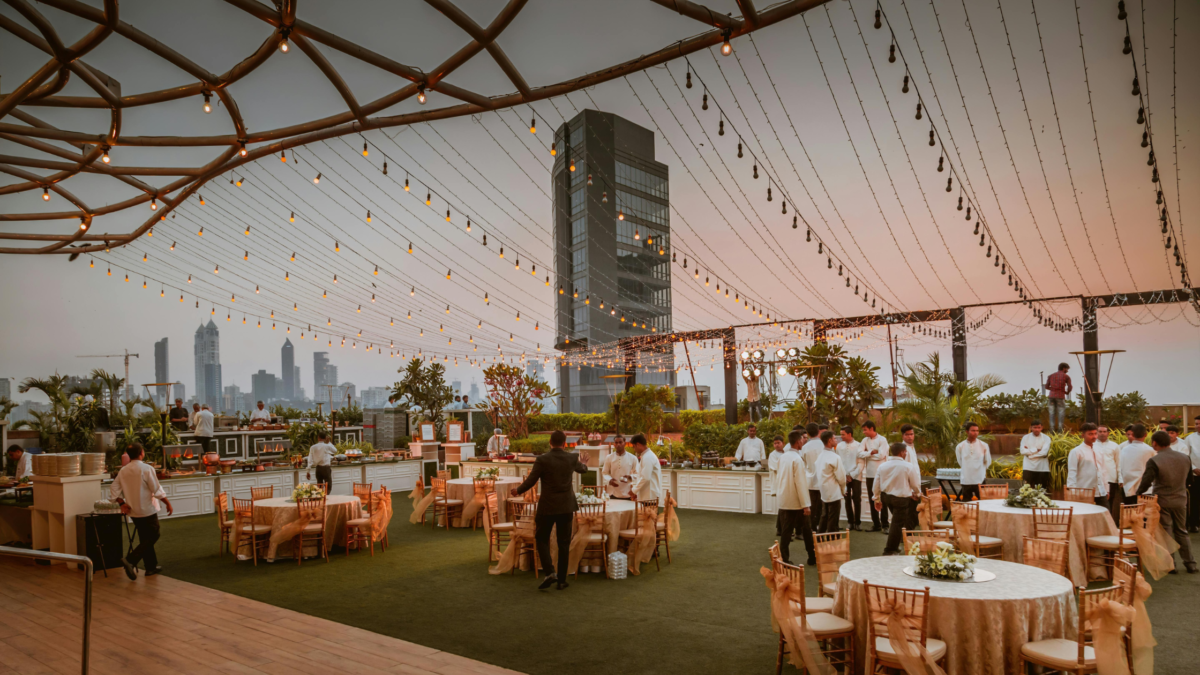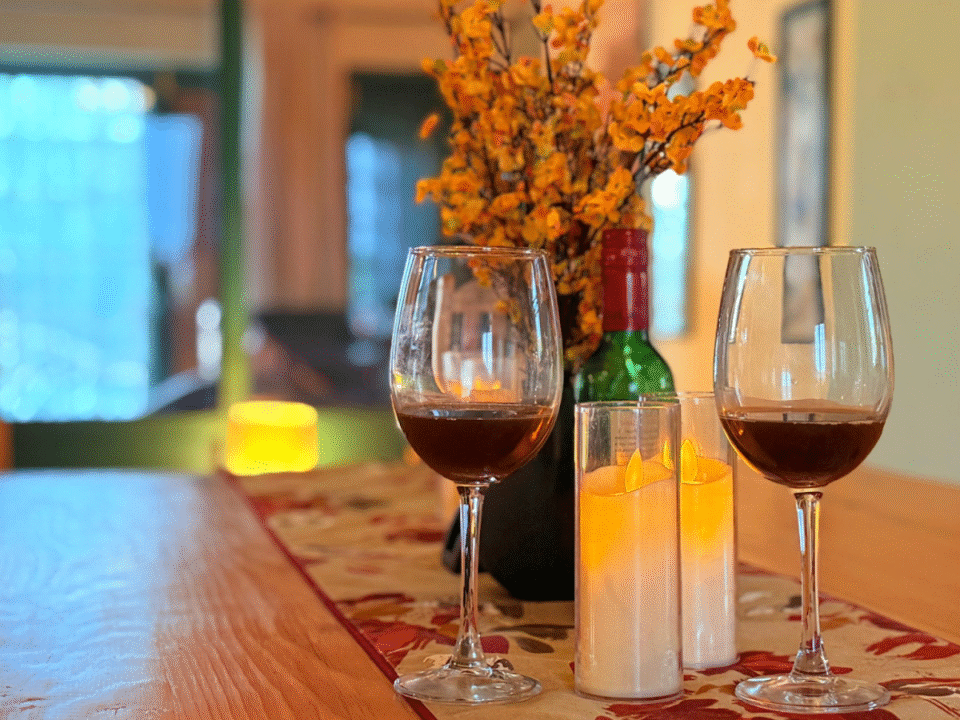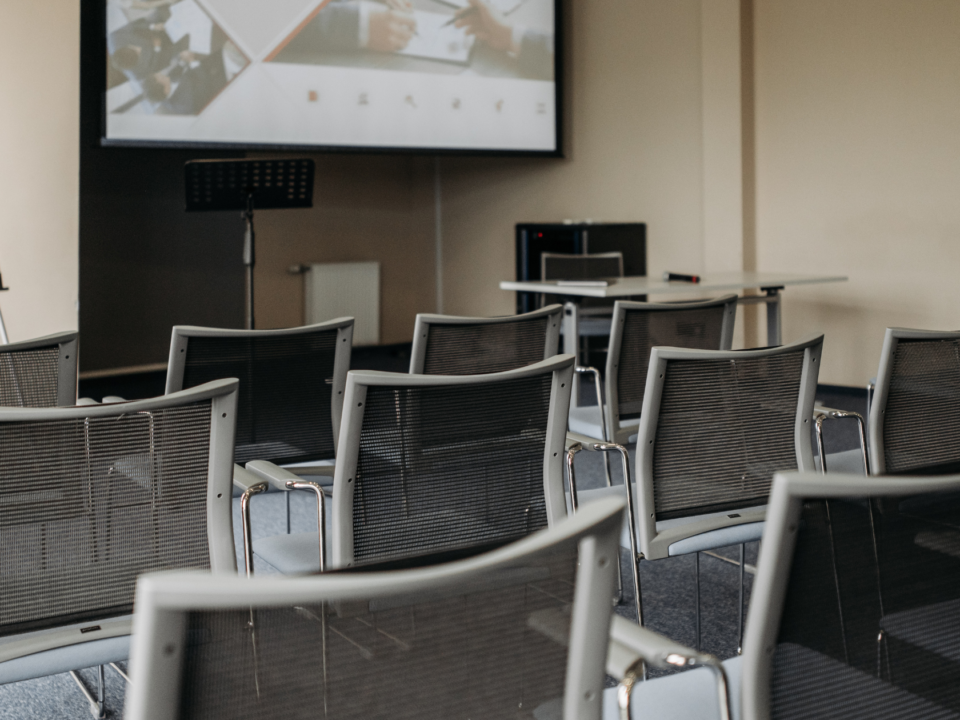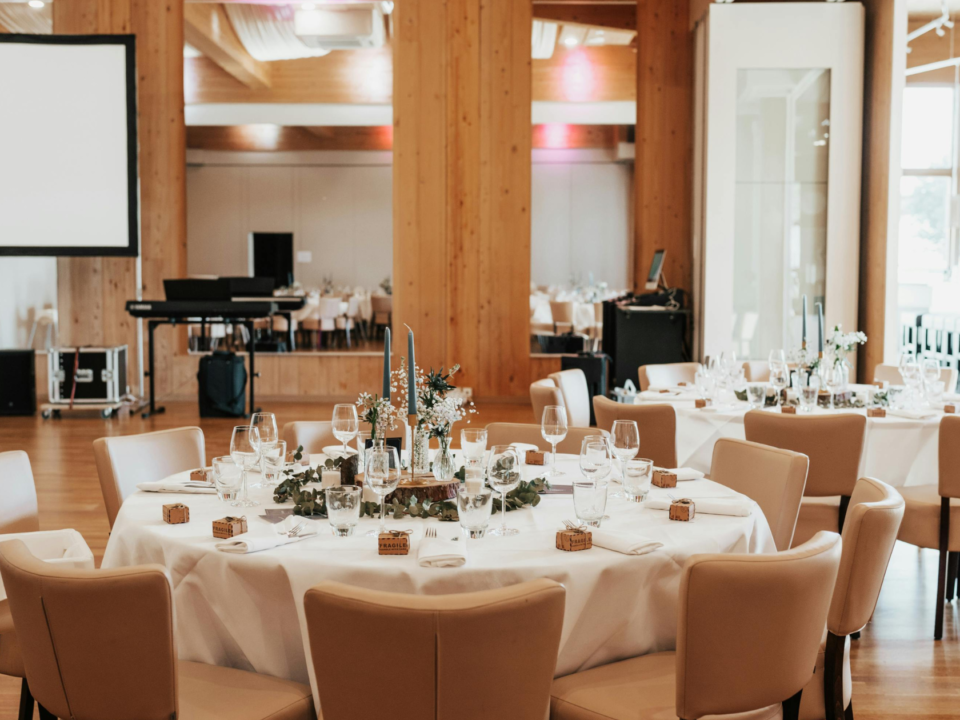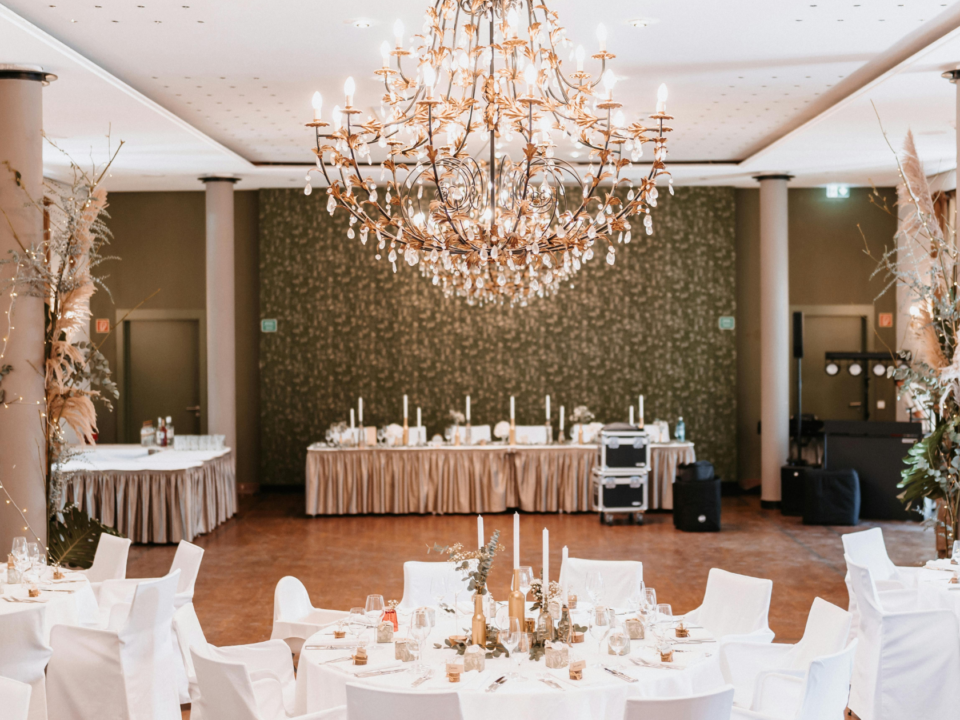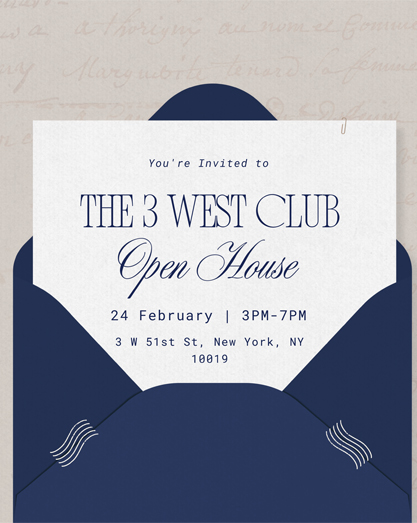Large Corporate Event Venues NYC Companies Prefer for Major Gatherings

Corporate Meeting Venues in NYC Businesses Trust for Successful Events
August 22, 2025
Discover Luxury Meeting Venues in Manhattan for Premium Events
August 22, 2025When companies think about staging a major corporate event, large corporate event venues in NYC are often top of mind. With three international airports, extensive commuter rail access, and subway lines that connect every corner of the city, NYC is one of the most globally accessible event hubs in the world. Add to that a robust vendor ecosystem of caterers, A/V specialists, decorators, and event planners, and you have an environment where large corporate event venues in NYC can thrive without compromise.
New York also brings a unique advantage that other cities cannot match: the media spotlight. Hosting a product launch, investor summit, or large customer conference in Manhattan means your event exists within reach of national outlets, financial press, and influential trade publications. This amplifies the impact of the gathering and ensures that your brand’s story is heard well beyond the walls of the venue.
But what exactly qualifies as a “major gathering”? In the context of corporate events, these are typically defined as functions drawing 300 attendees at the low end and 3,000 or more at the high end. These events are not about small group discussions but rather large plenaries, multi-track conferences, and experiences that demand sophisticated logistics. By understanding what qualifies as “large” and setting clear goals, companies can select venues that align with their vision and ensure every outcome, from attendance rates to media impressions, is achieved.
Capacity, Flow, and Venue Architecture
Capacity is the first practical lens through which companies view large corporate event venues in NYC. Events that welcome 300 to 700 attendees often need flexible layouts that feel grand but not cavernous. Mid-scale conferences in the 700 to 1,500 range demand careful modeling of circulation, from prefunction areas for registration and networking to wide aisles that allow for easy movement between sessions. At the 1,500 to 3,000+ level, the architecture itself becomes a defining factor: ceiling height, sightlines, and clear spans must all support the scale of production in large corporate event venues in NYC.
Trusted venues anticipate these flow challenges and design spaces accordingly. Prefunction areas are particularly important; they allow attendees to check in, network, and engage with sponsor activations without crowding main rooms. Circulation routes must avoid choke points, with queueing areas, registration counters, and wayfinding signage thoughtfully distributed. Comfort is equally critical. Long agendas require seating that balances density with personal space, ensuring participants remain focused and engaged rather than restless or fatigued.
Architecture also extends to the support spaces that attendees may never see but that planners depend on. Breakout rooms, green rooms for speakers, and storage areas for gear and materials must be easily accessible. For conferences with sponsors or exhibitors, an expo footprint needs to be integrated seamlessly into the flow, with demo zones, utilities access, and activation spaces positioned for visibility without disrupting plenary sessions. Venues that provide this level of architectural foresight make large-scale events feel effortless for both planners and participants.
Production Design: Staging, Lighting, and A/V
At major gatherings, the venue is more than just a container; it’s a stage. The production design sets the tone for the entire experience, and trusted NYC venues understand the need for top-tier A/V and staging infrastructure. LED walls and projection systems are often the centerpiece, delivering crisp visuals that reinforce the event’s message. Confidence monitors allow speakers to stay on track without turning away from the audience, while camera positions ensure that every angle is captured for both in-room and hybrid audiences.
Lighting and sound are equally important. Line array speakers ensure sound is evenly distributed across the hall, while acoustic treatments prevent echo or distortion. Lighting not only highlights the stage but also creates mood and energy. A professional show-caller coordinates cues for video, lights, and sound so that transitions happen seamlessly. Importantly, redundancy is always built in. Backup microphones, power sources, and playback systems ensure that no technical failure derails the experience.
Connectivity ties all of this together. Enterprise-grade Wi-Fi with density planning allows thousands of attendees to connect without issue, while segmented networks ensure presenters and staff have priority bandwidth. Hardline drops for mission-critical systems like streaming and registration provide stability, and IT teams monitor performance in real time. Venues that prioritize production design make large gatherings feel polished and professional, elevating the company’s brand in front of its most important stakeholders.
Hybrid, Broadcast, and Logistics for Scale
Even in-person events now extend into hybrid formats, making broadcast production a critical requirement. Trusted NYC venues are equipped with multi-camera setups, live switching capabilities, and integration with streaming platforms like Zoom, Teams, or custom RTMP solutions. Remote speaker integration is seamless, with kits prepared for presenters joining virtually. Recording deliverables are organized in advance, complete with naming conventions and distribution plans, so content lives well beyond the event itself.
Logistics are the behind-the-scenes reality that can make or break large-scale events. Freight elevators, dock access, and marshaling areas for trucks are essential for efficient load-in and load-out. Floor load ratings must support heavy staging, while back-of-house routes allow staff and vendors to move without disrupting the guest experience. Union labor rules also influence timelines and budgets, with clear call times and overtime windows that must be carefully managed.
Trusted venues excel at coordinating these logistics, ensuring that equipment arrives, staging is installed, and rehearsals happen without unnecessary delays. Credentialing systems for vendors and staff, combined with organized storage for gear, allow the event to function like a well-oiled machine. For planners, this logistical support translates into confidence that their event will run smoothly from first truck arrival to final load-out.
Safety, Security, and Inclusive Accessibility
Large gatherings bring increased safety responsibilities, and trusted NYC venues meet them head-on. Fire code compliance, clear egress routes, and real-time headcount monitoring protect attendees in the event of an emergency. For higher-profile events, magnetometers, bag checks, and on-site EMTs may be necessary. Contingency plans for weather or external disruptions ensure organizers can communicate quickly and adapt as needed.
Accessibility is another non-negotiable. ADA-compliant routes, stages, and seating make sure every attendee can participate fully. Beyond compliance, inclusivity matters: quiet rooms for decompression, prayer, and nursing spaces, and translation services all contribute to making attendees feel respected. Some venues even integrate sensory-aware design, offering lighting and audio adjustments for neurodiverse participants.
When safety and accessibility are prioritized, companies send a powerful message that their events value not only attendance but also the well-being and dignity of every participant. Trusted venues make this possible by embedding these practices into their design and operations.
Sponsorship, Expo, and Guest Experience
Sponsorship often fuels the budgets of large corporate event venues in NYC, making the expo floor a centerpiece. Venues must provide the infrastructure for tiered booth packages, reliable utilities, and rigging points for signage. The attendee journey is carefully designed so sponsors are visible without overshadowing content, balancing education with exhibitor ROI. Post-event reporting on lead capture and traffic metrics helps demonstrate the value of sponsorship, ensuring long-term relationships with partners.
Registration and hospitality form the first impression. Efficient systems such as pre-badge mailers, QR scanning, and self-service kiosks reduce wait times. Will-call protocols ensure smooth handling of last-minute arrivals. Once inside, the guest experience becomes the defining feature. Food and beverage service models, whether stations, plated meals, or grab-and-go options, must accommodate high volumes without creating bottlenecks. Allergen-friendly menus, hydration points, and caffeine strategies maintain attendee energy while supporting inclusivity.
VIPs, media, and speakers also require tailored experiences. Green rooms with secure routing, media risers with interview backdrops, and rehearsal schedules for speakers all contribute to a professional and polished event. Trusted venues handle these layers of complexity with a hospitality-first mindset, ensuring every guest, from executives to exhibitors, feels valued.
Neighborhood Fit, Permits, and Compliance
Experience Elegance in Midtown
Host your next holiday dinner or private event at 3 West Club. Discover refined dining and historic charm in the heart of Manhattan.
Location in NYC shapes everything from commute times to media attendance. Midtown is the most popular choice for its proximity to Penn Station, Grand Central, and countless hotels. Downtown and the Financial District work well for finance-focused events, while cultural or creative companies may prefer the energy of Chelsea or the West Side. Regardless of neighborhood, accessibility to subways, commuter rails, and airports is critical for large delegations.
Permits and compliance requirements add another layer of planning. Special event permits, fire guard staffing, and liquor licenses may all be needed. Certificates of insurance, indemnification language, and union agreements must be reviewed carefully. Trusted venues don’t leave these details to chance; they guide planners through the process, ensuring no regulatory oversight threatens the event.
Budgeting, Contracts, and RFP Framework
Budgets for large corporate events are complex, but transparency separates trusted venues from the rest. Space rental, labor, A/V, décor, and food and beverage minimums form the core drivers. Hidden costs such as rigging, power drops, drayage, and waste removal must be anticipated. Trusted venues disclose these fees early, giving planners the ability to adjust scope or negotiate accordingly.
Contracts are another area where trust is tested. Hold strategies, release windows, cancellation schedules, and rebooking credits all need to be clearly defined. Force majeure clauses and attrition policies should be written in plain language. Venues that spell out overtime rules, access hours, and load-in/load-out parameters help planners avoid last-minute disputes.
A structured RFP process further ensures fairness. By requiring venues to respond with capacity, A/V assumptions, bandwidth needs, utilities requirements, and accessibility features in a consistent format, planners can compare apples to apples. Trusted venues welcome this level of detail, knowing their reliability will stand out.
Site Visits, Timelines, and Floor Plan Design
Site visits bring proposals to life. Testing acoustics with HVAC running, stress-testing Wi-Fi at seat level, and reviewing sightlines all confirm whether a venue can deliver. Walking the dock-to-stage route reveals the feasibility of load-ins, while reviewing restroom ratios and emergency exits confirms compliance. Trusted venues encourage this scrutiny, understanding that transparency builds long-term trust.
Timelines for large events extend far beyond the event week. Planning often begins 12 to 18 months out with venue shortlists and soft holds. Nine months in, design concepts, sponsor prospectuses, and staging plans are locked. Six months out, show flow and hotel blocks are confirmed. The final 90 days focus on technical checks, staffing, and credentialing. By show week, rehearsals and cue-to-cue run-throughs ensure flawless delivery.
Floor plan design is also essential. Well-designed plenary spaces use side screens and projection lanes to optimize visibility. Breakout clusters are positioned near F&B stations to maintain energy. Expo layouts are designed as loops to maximize dwell time without creating bottlenecks. Trusted venues often provide templates that save planners time while ensuring attendee comfort and sponsor visibility.
Measurement, Iteration, and Long-Term Strategy
The value of a large corporate event isn’t measured only in applause but in outcomes. Post-event KPIs track attendance against registration, NPS scores, session ratings, and sponsor ROI. Press coverage and sales pipeline influence are also valuable indicators of success.
Trusted venues often contribute insights of their own, sharing operational lessons that help planners improve year over year. By capturing these lessons, companies transform events from one-off productions into strategic assets. Iteration ensures that every gathering builds on the success of the last, cementing the company’s reputation for delivering impactful experiences.
Plan Your Next Major Gathering at 3 West Club
At 3 West Club, we understand what it takes to host large-scale corporate events that companies trust year after year. Located in Midtown Manhattan, our venue combines historic elegance with modern functionality, offering ballrooms and flexible salons designed to support plenary sessions, breakout clusters, and sponsor activations.
Our production-friendly team partners with clients on every detail, from A/V planning and staging to run-of-show execution and hospitality coordination. With in-house catering, discreet executive access, and attentive day-of support, we ensure that your agenda runs on time and your brand shines throughout the event.
An unwavering commitment to making every event a success. If you’re planning a major corporate gathering in NYC, we invite you to schedule a site tour, confirm availability, and explore our tailored packages. Let us show you why companies across industries prefer the 3 West Club for their most important moments.
Just steps away from Penn Station, Grand Central, and some of NYC’s best hotels, 3 West Club makes logistics simple for large delegations and traveling executives. Our reputation is built on reliability, trust, and an unwavering commitment to making every event a success. In addition to being a landmark choice for corporate gatherings, we also provide versatile meeting space, elegant holiday party venues, a stunning rooftop space, refined intimate wedding venues, comfortable guest rooms, and a timeless wedding venue that balances historic charm with modern amenities.
If you’re planning a major corporate gathering in NYC, we invite you to schedule a site tour, confirm availability, and explore our tailored packages. Let us show you why companies across industries prefer the 3 West Club for their most important moments.

